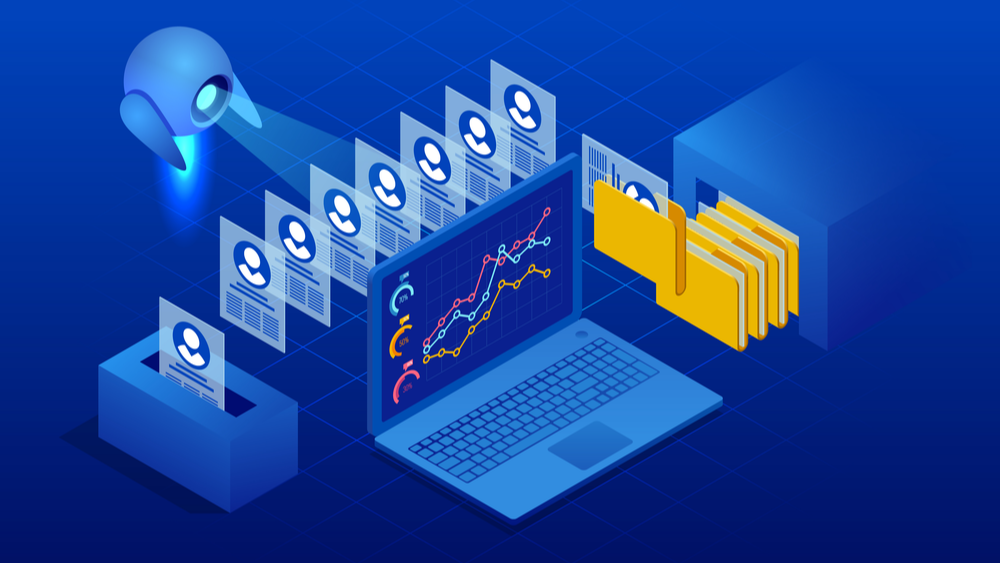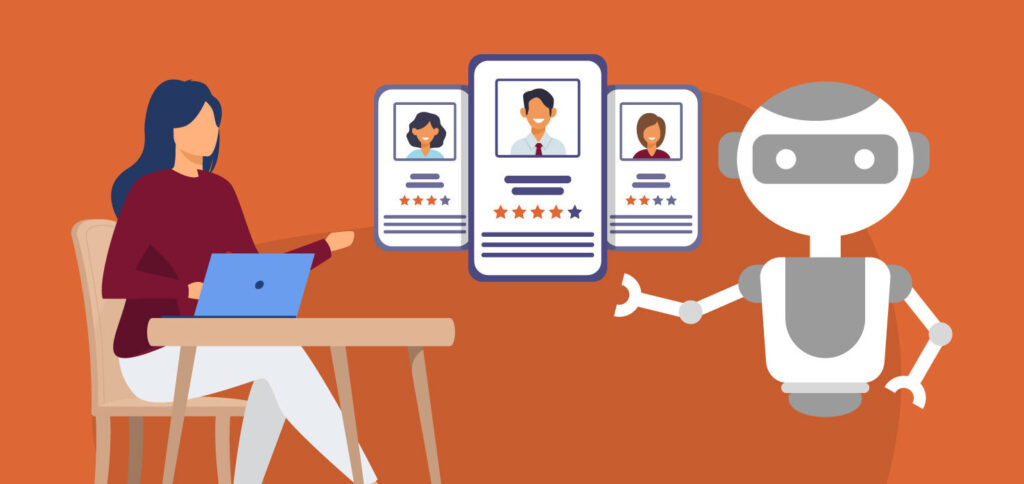The Rise of AI in Hiring: How Automation is Transforming Resume Screening and Pre-selection
A great portion of the human resources world is in the midst of a major transformation whose catalyst is undoubtedly AI (artificial intelligence). Automation of procedures by use of technology in the form of resume screening and candidate pre-selection interweb the recruitment process by bearing the burden of routine tasks like resume review and candidate pre-screening, which gives the recruiters more time to use for strategic roles that involve candidate interactions and candidate evaluation.

The Traditional Approach: Extremely Time-Consuming and Clearly Bias
Sometime ago, candidate screening was done by each interviewer title by title and manually stamped on resumes; now it is an overwhelming task whereby interviewers are submerged in over a thousand applications and use resumes in their filtering. This scheme, nevertheless, was slow, inefficient, and subjective and could lead to such prejudice in those circumstances. Additionally, it reduced the talent field only to those who existed with a keyword-stuffed résumé, potentially disregarding someone who may have extremely polished communication skills but was packaged differently.
AI Enters the Game
Intelligent-supported skills start to dispute the same with the motto of avoiding these consequences. Those auxiliary tools correspond to a kind of machine learning algorithm that makes it possible to get a fast and exact candidate qualification estimate using tens of thousands of cases.This allows recruiters to:
• Focus on what matters most: It will allow to shorten the first phase of a candidate screening and concentrate the workforce on more complex operations, for instance, involvement activities, in-depth interviews, and creating a cultural fit.
• Increase efficiency: AI can do 100 resumes in one minute, while humans need more than 2 hours to finish the same resumes. As a result, AI drastically decreases the time spent selecting a qualified candidate. Such a kind of action can contribute to the total success of employer-organized recruitment efforts.
• Reduce bias: AI avoids the biases that occur due to information such as one’s name, gender, or the school one has attended because it is based on objective criteria and does not take into account any subjective factors. As recruitment becomes more data-driven, it seems candidate-centric.
Nevertheless, behind the curtains of AI systems is the subject of algorithms that have the function of automating decision-making processes through operations that were once assumed to be done by humans.

Now, how exactly does AI bring about this abundance of merit?
Here’s a simplified breakdown:
1. Data Input: To train the AI system on how to filter applicants, the recruitment personnel will provide job descriptions, skills, and experience levels relevant to the vacancies.
2. Resume Parsing: An AI engine is at hand to identify the key features of the resume, it interprets true education level and job experience, relevant skills, and dependable keywords.
3. Candidate Ranking: Employing the data acquired from the applicants’ professional credentials and their relevancy to the positions that they are considered for, AI makes a thorough assessment and awards a ranking to the candidates’ commensurate impact on their eligibility for the jobs.
4. Pre-Selection: AI machinery will filter out the minimum requirements listed, such as years of experience, degree level, and language proficiency, and the top-down criteria to decide which applicants enter the initial pool.
It’s Not Just About Automation: Human Touch remains important till now.
It is precisely that AI does not intend to take out human recruiters, and this is paramount to grasp. Conversely to the elimination of the human factor, the purpose of this is to serve as a useful set of tools in the initial interaction of work life. Recruiters still play a vital role in:
• Setting up the AI system: Develop the required code that determines the skill set and working knowledge expected of a candidate and possibly makes the system more accurate with guided selections.
• Reviewing pre-selected candidates: Moreover, AI may not be able to detect the particular nuances, in other words, those details that humans would be able to pick up—or the machine might input the resumes incorrectly, but either way, human capacity is indispensable in the process of finding the right candidates, which would be the next step.
• Conducting interviews and making final decisions: Estimating cultural sensitivity, cognitive ability, and social skills isn’t closer to science, and it needs a person to judge them who has the ability to scan through his or her knowledge and experience.

The Future of AI in Recruitment: In the team, it’s time we take an overall integration approach.
AI has been well known as a disruptive technology in the last decade. It is also starting to be applied in recruiting, with as yet only experimental results, and talking about the biases with regards to ethics is still an ongoing discussion. As AI technology continues to develop, we can expect further advancements in its capabilities, offering:As AI technology continues to develop, we can expect further advancements in its capabilities, offering:
• More sophisticated skills assessment: The job of AI can include the analysis of language, communication skills, or emotional intelligence, with a short video resume.
• Personalized candidate experiences: AI would facilitate the application procedure to become personalized as the questions and tests would be constructed with consideration for each individual.
• Predictive analytics: This could have been a situation where AI was being used to forecast the candidate’s performance as well as future job satisfaction, thereby making better hiring decisions.
AI in recruitment is going to use collaboration as the key thing in the future. With the AI abilities for efficiency and automation, and with the human touch for crucial decision-making matters and job applicant interaction, companies can come up with a recruitment process that is less biased, streamlined, and efficient, which can attract and retain the organization’s top talent.


